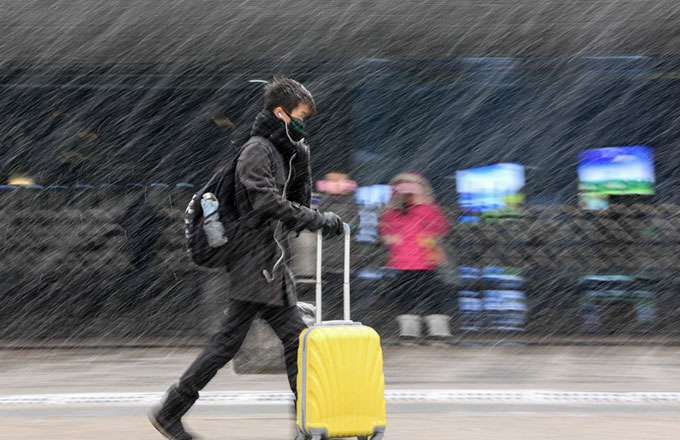Trump's 'America First' policies could backfire
With a relatively short inauguration speech reportedly self-written, Donald Trump, now the 45th President of the United States, again proved his aspiration for achieving what is regularly unachievable.
This time, though, he wants to unite his politically divided nation with an off-the-beaten-track, potentially divisive, rallying call — one that is anti-tradition, anti-establishment, anti-globalization, anti-free-trade and virtually anti-everything present.
While it is purely America's business whether and to what extent his home audience will rally behind Trump the great savior, the new US president's "America First" signboard is something to worry about for the rest of the world, China included.
Not because what it literally says, because as Trump has said, every nation is entitled to prioritizing its own interests.
But rather because it carries forward the signature Trumpian antagonism to globalization, and the corresponding beliefs that have shaped the way countries interact, interdepend and co-exist economically.
If the speech was a declaration of war, as some put it, it is not just against the establishment in Washington, but, more importantly, against globalization, against free trade.
In Trump's narrative, free trade has "enriched" other countries, but "depleted" American wealth, strength, and confidence, and become a process of "ravages of other countries" making American products, stealing American companies, and destroying American jobs.
The only way out, and to "Make America Great Again", then, is to go isolationist, protectionist.
"Protection will lead to great prosperity and strength," he announced. And his prescription is simple indeed: "Buy American and Hire American".
It remains to be seen whether this will make America "strong again", "wealthy again", "proud again", "safe again". But the protectionist orientation will certainly usher in a period of global tumult as it translates from pre-presidential bluff into presidential actions.
Globalization as it is has downsides, and needs to be fairer, more inclusive, and broadly benefiting. But backpedalling will hardly facilitate Trump's vision of rebuilding American greatness.
Despite the global concern about uncertainty that befalls with the Trump presidency, at least one thing appears certain: Protectionism will pit the US increasingly against the rest of the world, starting from trade.
As the present-day world's No. 1 foreign trader, China will find itself a foremost victim as the world's largest economy, and consumer market, slams its doors shut on free trade. While the feared China-US "trade war" remains a fear, the economic interdependence, deep, broad and solid as it is believed, does not suffice for preventing a new round of mutually-weakening wrangling in trade, and beyond.
Given Trump's previous indications of readiness to resort to political levers, as wild and provocative as the Taiwan card, for Beijing's concessions in trade, things may get messier than can be anticipated.
As an emerging champion of globalization and free trade, Beijing, along with the US' old and new allies and partners, need to find a way to demonstrate to the nascent administration in Washington the prospect of an updated, more desirable version of globalization, and the benefits it promises.
The Taiwan card is bottom line breaking. As long as Trump doesn't break that line, an overture of more reasonable, mutually-beneficial trade ties should precede confrontational actions.


















